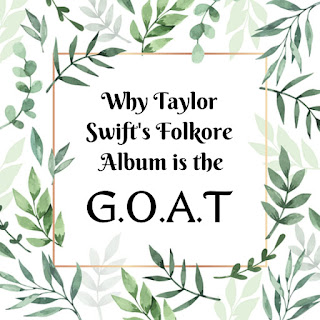Time Flies By~70s
1970
The Partridge Family
If you like the Brady Bunch then this is
your cup of tea. A widowed mother and her five kids form a
band and make a hit record, then travel around the country in a groovy school
bus. The comedy contrasts life on the road with the cozy suburban life they
return to after the show is over. There's feel-good music, hapless adults,
scheming kids and heartthrob teens thrown in for good measure.
1971
All In The Family
All in the family is regarded as the series
that brought reality to prime-time TV entertainment. The lead character, Archie
Bunker, is a loudmouthed, uneducated bigot who believes in every stereotype he
has ever heard. His wife, Edith, is sweet but not the sharpest knife in the
drawer. They and their daughter, Gloria, and her husband,
Mike, all live in a working-class home. Unfortunately for Archie, he can't
avoid the people he disdains: His son-in-law -- whom Archie calls
"Meathead" -- is an unemployed student and of Polish descent; the
Jeffersons next door are black; Edith's cousin Maude is a feminist; and, later,
his partners in a local tavern are Jewish.
1972
M*A*S*H
M*A*S*H remains one of the
most important television shows of all time, owing to the incredible legacy
that it has left behind. This show depicted the lives of army doctors during
the Korean War, beautifully blending elements of wacky and absurd comedy with
grounded realism and hard-hitting personal drama.
The blending of genres
was incredibly unique, and elements of it can still be seen today in
"workplace comedy/dramas" like Scrubs. Despite numerous
shows "borrowing" its DNA, there will never be a program like M*A*S*H again.
1973
Barnaby Jones
A retired detective and forensics expert, Barnaby
Jones, returns to the field to track down his son's murderer. This time, he is
accompanied by his widowed daughter-in-law, Betty.
1974
Happy Days
Set in 1950s and 1960s Milwaukee, this series tells the
story of the Cunningham family -- father Howard, mother Marion, son Richie and
daughter Joanie. Howard owns a hardware store, while Marion stays at home.
Richie's best friends are Potsie and Ralph. Arthur "Fonzie"
Fonzarelli is the local bad boy, riding a motorcycle and
filling his days with fixing cars and dating girls. During the show's run,
Richie leaves home to join the U.S. Army.
1975
S.W.A.T
S.W.A.T. is not often
remembered, but that doesn't make it any less influential. As is obvious from
its title, S.W.A.T. follows the adventures of a S.W.A.T. team
in an unnamed California city. The show was enormously influential for its
realistic portrayal of violence on television, which was a popular and
divisive talking point at the time.
It helped revolutionize
the way that both violence and the police were portrayed on television, and it
helped give rise to the literally countless police periodicals that would
follow.
1976
Charlie’s Angels
This
is one of the best feminist shows till time and I freaking love it. Created by
both Ivan Goff and Ben Roberts and produced by Aaron Spelling, Charlie’s Angels proved
a huge hit throughout the late '70s. The show ran for five seasons and 115
episodes between 1976 and 1981, led of course by the thrilling performances of
Kate Jackson, Farrah Fawcett, Jaclyn Smith, and Cheryl Ladd.
The show was often
criticized for taking advantage of its female leads (known then as Jiggle TV),
but it still proved greatly influential in female empowerment. It also spawned
a media franchise that is still going to this day.
1977
Like so many other series that eventually lose their original stars, Three’s Company was just not the same without Suzanne Somers as dizzy Chrissy Snow and Norman Fell and Audra Lindley as bickering landlords Stanley and Helen Roper (who segued into failed spin-off The Ropers.) But what a refreshing gem it was in those 1970s years, with this farce an exercise in comical misunderstandings and innuendos. And back at its inception in 1977, the idea of two young women sharing their apartment with a man was also very risqué.
1978
Dallas
Dallas is perhaps the most popular soap opera of all time. This wasn't just a
primetime soap - it was a piece of American culture. Millions of people were
glued to their screens every week, and the iconic "Who Shot JR?" cliffhanger and
subsequent marketing campaign essentially changed television forever. The
following episode, Who Done It, was viewed by an incredible 90 million people, or
about three-quarters of all American TV viewers. If a modern show utilizes
cliffhanger, it has Dallas to thank.
1979
Benson
Butler Benson DuBois is the smartest (and possibly only sane) member of
widowed Gov..Eugene Gatling's household staff. Benson always manages to keep
his head, no matter what the staffers or the governor's family members throw
at him. He begins his post on loan from his employer, Jessica Tate (Katherine
Helmond) on the show "Soap," but soon wins a permanent place in the
governor's staff and heart. His cool head and keen intellect are a perfect
complement for the constant craziness that surrounds Gov. Gatling and his
entourage.
Thank you so much guys! . Please follow our twitter,
pinterest and instagram handle.
Instagram : https://www.instagram.com/alphagalaxy_/?hl=en
Twitter : https://twitter.com/galaxyalpha














Good!!! Weldon
ReplyDelete잘 했어,❤️
ReplyDeleteNicee 👍👍👍👍
ReplyDelete